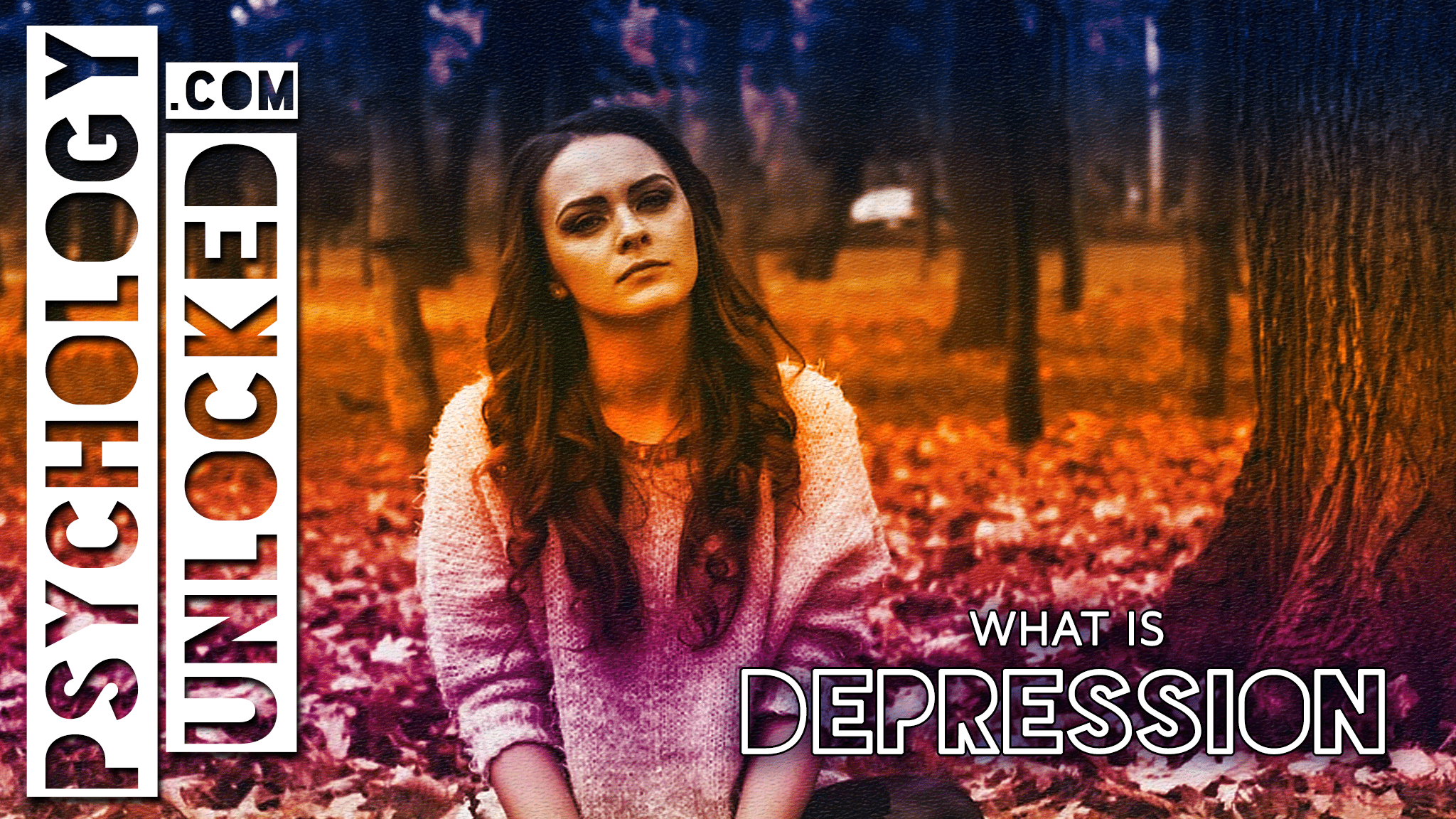
SCROLL DOWN FOR VIDEO
According to World Health Organisation data, 264 people around the world are currently suffering from depression. So, is depression a disability? And what causes it?
Clinical depression is a serious, diagnosable, mental illness. It affects more women than men, but both sexes experience depression.
If left untreated, depression can severely affect well-being and life-satisfaction. Depression is also a major cause of suicide.
- The Dunning-Kruger Effect: Why we think we know more than we do
- The Yale Food Addiction Scale: Are you addicted to food?
- Addicted to Pepsi Max? Understand addiction in six minutes (video)
Is depression a mental illness?
According to Beck (1967), the behavioural symptoms of depression (primarily a shift in emotional state) are a consequence of a prior shift in cognition.
Beck hypothesises that a depressed person’s thinking changes in three ways, something he calls the Negative Triad.
Beck’s Negative Triad
Beck (1967) says that a depressed person’s thinking has changed in the following ways:
1 – High level of self-blame – everything that goes wrong is my fault.
2 – Overemphasis on the negative – everything is terrible. Little negatives become big negatives.
3 – Pessimistic about the future – life is always going to be this bad.
Whilst depression therefore starts as a mental illness, it doesn’t stop there.
Is depression a disability?
The answer to whether depression is a disability comes down to the social consequences of developing symptoms of depression.
Someone who displays the symptoms of Beck’s Negative Triad can be quite hard work to spend time with for friends and family members.
Especially due to the pessimistic outlook, where anything positive can be dismissed, friends and family members may withdraw.
This turns depression into a wider issue and can have social and economic consequences as well as a personal impact.
Depression Causes
In 1978, Kovacs and Beck developed the intial Negative Triad theory to account for additional factors that can influence the onset of depression.
Beck develops a Diathesis-Stress Thesis in which he hypothesises that some people are predisposed to develop depression under certain conditions.
If such conditions are met, a schema is activated, which sets the development of depression in motion.
Beck calls this scheme a depressogenic schema.
Other researchers have found additional factors influncing depression, including attributional style.
Those who attribute negative events to their own shortcomings are more likely to experience depression than those who attribute blame elsewhere. This seems consistent with Beck’s mention of self-blame in his Negative Triad.
Rosenthal (1970) argues for a strong genetic factor – people with a first-degree relative who has a serious mood disorder are ten times more likely to develop a similar disorder than those without a close family connection.
Research also demonstrates that certain medications, which interfere with the release of norepinephrine and seratonin in the brain, are able to bring on depressive symptoms. This has led to the suggestion the depression may be a result of a depletion in the monamines in the brain (dopamine, seratonic and norepinephrine).
